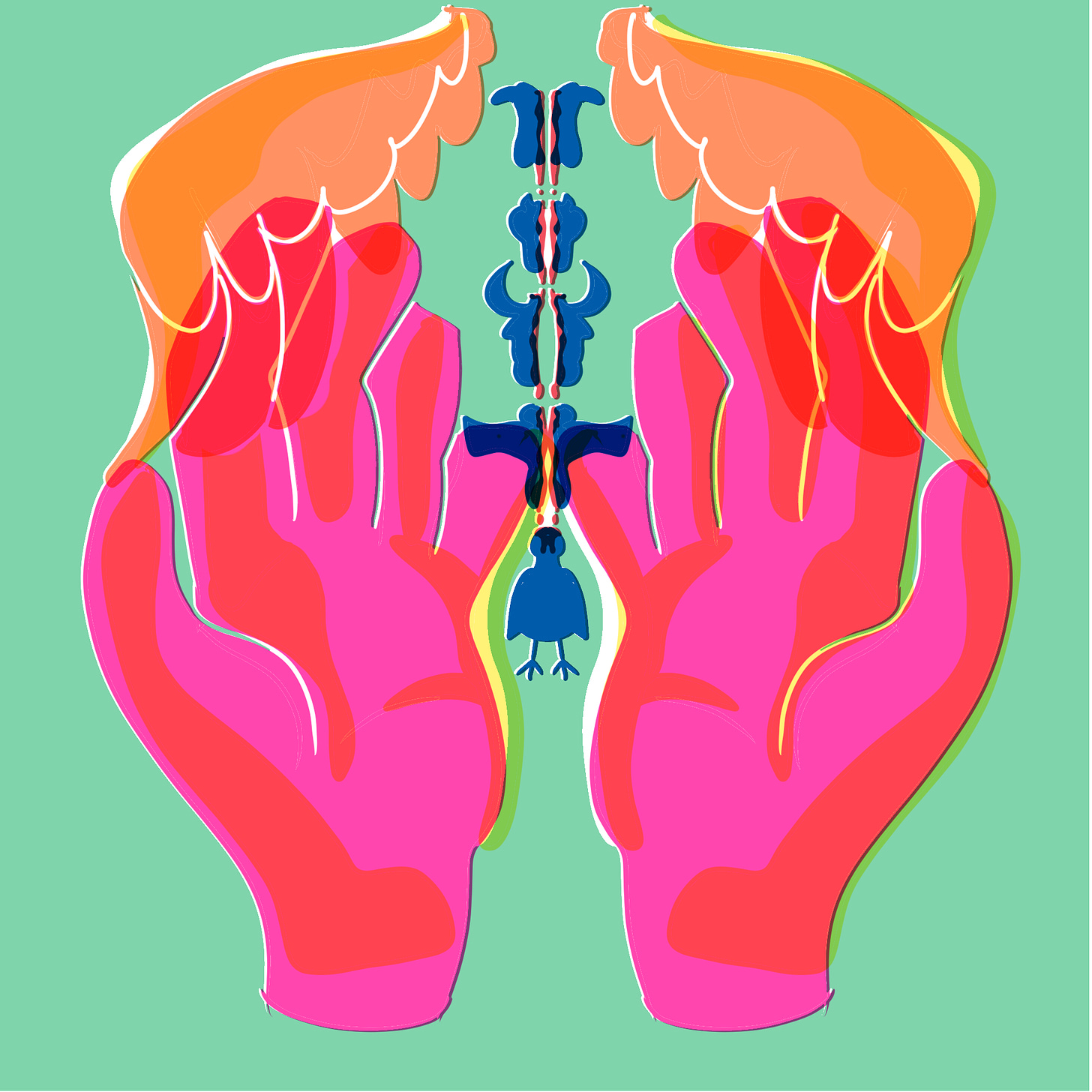Parshat Lech Lecha
“…and a great dark dread descended upon him.” (Bereshit 15:12) CW: Vague US election emotions
Last year I remember really focusing on the intimacy of God’s burgeoning relationship with Avram in this parsha. There is this slow and organic building of trust that’s been happening, not just with Avram himself but between God and humanity as a whole, with Avram as the sort of literary representative for all of us.
This year, my focus feels a bit different.
In Lech Lecha there is this strange ritual that Avram does. God directs him to bring five animals but does not tell him why or how. And Avram kills them and arranges them in pieces. It is literally strange, strange in a way that brings to mind avodah zara, “strange worship” — where did he get this method of sacrifice? As the sun sets, he dutifully guards the dead animals from vultures, and then God initiates a dreamlike prophecy with him:
Avram himself will die a peaceful death, but the same is not true for his offspring in the future — they will face slavery and suffering and injustice. This is a direct, divine encounter with God, and God isn’t telling him, “Trust Me, and everything will be ok.” God is telling him that no matter what, this suffering will unfold. Or even: if Avram trusts God, his offspring will be put in this position of suffering. He can do everything God says, he can do everything “right,” and horrifying things will happen.
I went to bed last night thinking about how Avram felt, filled with dread for future generations and powerless to do anything about it. He has just prayed to God about being childless, and God is rewarding him with children who will suffer long after he is dead.
Avram is a devout character, endearingly so. And his relationship with God is intimate, it is powerful. They have seven direct encounters, and this is their fourth — and it’s the first time that God opens up about bad things to come. It’s a critical moment — I’m not sure how much Avram feels like he has a choice, but he does have a choice of how to react, and he feels like the only way forward for him is to keep living, to accept the blessings along with the suffering, and to keep following God.
Torah is a mirror, or a microcosm of life. If the future seems dreadful and out of our control, then the only way forward for us is to keep living and persevere, to do our best in our lifetimes. And we are not like Avram here in a crucial way — we do not actually have a real prophecy of the future, no matter how real the dread feels.
I thought a lot about how many people would be writing mailing list posts like this one, preparing dvarim, having conversations in small groups — using Torah or even this part of the parsha to process politics today. I’m grateful for that sense of community in this moment, for sure.
The prophecy in Lech Lecha ends with even more weirdness — an oven appears, and a lit torch that passes between the pieces of the sacrifice that Avram laid out. It’s a mysterious passage and no one really knows what it means, but I think there is a potential interpretation here of this: If Avram laid out these sacrifices in his own way, in a way that was “strange” to God, perhaps this is partially teaching him what God’s preference is. God likes burning sacrifices, God likes fire and smoke — perhaps God is showing Avram how to sacrifice in a pleasing way.
I am thinking about how prayer has “replaced” the sacrificial service of the Temple. If that’s true, then I imagine there is an allegory: After the dread of night, God has materialized fire to the meditations of my heart and lips so that they burn bright in the darkness.
I thought about this as I said the Shema last night, especially as my lips moved around “uv’lechtecha vaderech” — to keep the words on my heart “when you go along the way.”
Lech lecha — “Go forth,” no matter what the future may hold.




